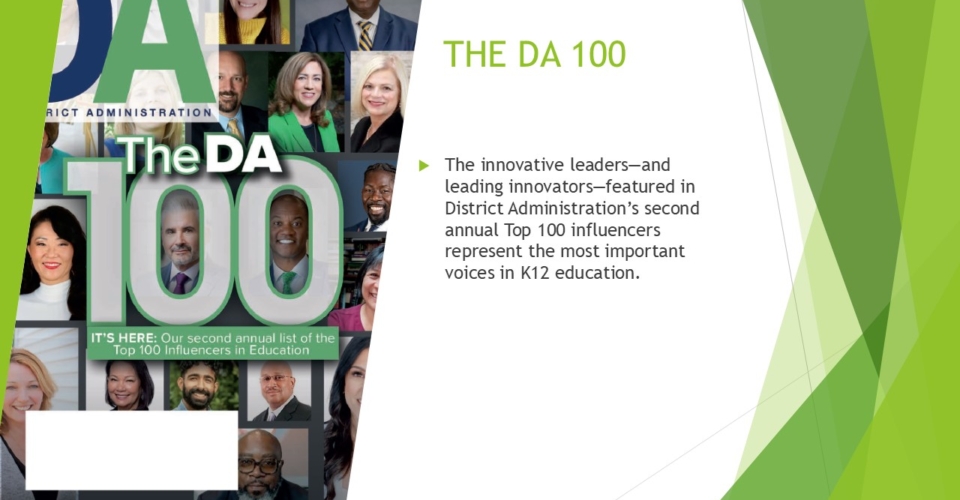Change is the only constant in life, Heraclitus said. It’s true for everyone, but for education leaders over the past few years, that change seems to be even more constant—and disruptive, from pervasive politics to a global pandemic. Many refer to this academic school year as the first year of “normalcy”—but is it, really?
Many students are still a grade level behind. Their mental health is worse than pre-pandemic levels. Finding teachers is still a struggle for many districts.
How students are educated is different, too. Schools are using technology in ways they never anticipated before COVID. Artificial intelligence’s use in the classroom has become a serious debate. And student mental health is just as crucial a factor in academic life as learning.
In 2023, education leaders have witnessed all this intense change on the front lines.
Sora Schools, a virtual private middle and high school, recently published its “Trends in Education” report for 2023. According to the findings, these are seven of the most disruptive forces shaping education this year and beyond.
Time to ditch the grades?
Not everyone is an excellent test-taker. So why should that be the gold standard for evaluating a student’s talent? Career readiness has become one of the most prominent areas of focus for district leaders in recent years. And it’s a trend that will continue.
Employers are screening potential job candidates’ GPAs at a lower rate than ever, according to the report. In 2014, 68.1% of companies said they consider an applicant’s GPA. In 2022-23, that number shrank to 37%.
“There was a time when the GPA meant everything,” the report notes. “Now, the world is more interested in seeing real evidence you’re suitable for the job.”
Rethinking school
The pandemic gave parents and families a front-row seat to their child’s education. For many, it was an eye-opener. They saw flaws in their school’s curriculum and how their children were taught.
Half of the parents surveyed told Sora they would send their child to a different school if money weren’t an issue. The demand for more personalized and needs-based education helped drive a plethora of new opportunities for families.
“Microschools and similar education innovators like Kaipod Catalyst, Prenda, Acton Academy and Wildflower are looking to drastically increase schooling options in different communities,” according to the report. “It’s difficult to get accurate numbers, but it appears as many as 2.2 million students in the U.S. are using micro-schools as their full-time school for the 2022-2023 school year.”
Once teachers, now coaches
The student experience has drastically changed. As they crave more individualized learning opportunities, teachers are responding by reimagining their duties as teachers and focusing more on becoming a mentor.
“Modern advancements in technology, like admin automation and smart student data, have made it possible for teachers to focus more on supporting students in achieving their goals,” the report reads. “As a result, we’re seeing teachers becoming more like coaches who empower students to make their own way through education.”
Embracing artificial intelligence
Related to the previous trend, recent advancements in AI technology are sparking an identity crisis among educators. Tools like ChatGPT—once a concept of the future— now serve as teaching companions.
“Mass plagiarism. The end of homework. The death of critical thinking. Since its release, the media has speculated wildly on ChatGPT’s impact on education, mostly spelling doom,” the report reads. “It calls into question not just what skills students should consider focusing on for the future, but the very nature of learning and ability. ChatGPT turned F-level students into B-level students overnight.”
Focus on creative thinking
Creative thinking will outshine technical ability from here on out, according to the report. In response, school districts are redesigning their curricula to meet this need. 87% of teachers also say they agree that creativity leads to more positive cognitive outcomes.
It’s up to schools to foster creative environments. Teachers must utilize new technologies and ideas to create opportunities and advance students’ knowledge.
Learning through gaming
“The future of education looks less like a classroom and more like a video game,” the report reads. The negative stigma surrounding video games is long gone as schools are continuing to invite gaming into the classroom. It allows students to seek out challenges and practice teamwork while also receiving cognitive benefits.
“Of course, not all games are good for all students or learning,” according to the report. “But there are special properties of games that encourage us to push on, that make us more tolerant of making mistakes.”
Addressing mental health
Student mental health has become a national crisis. Nearly 60% of young people say they’re in mental distress, according to the research. Their reasons vary, but most people say they believe it’s a school’s duty to help families address this issue.
Anxiety, depression and other mental health disorders have proven to have a profound impact on a student’s ability to learn, the report adds. With this at stake, it’s important for teachers and administrators to play a critical role in supporting their students’ mental health struggles.
“Michael Horn, an expert on the future of education, says it’s vital that schools are equipped to provide the necessary support for students so that they can thrive academically and in the future,” the report reads. “That doesn’t mean that schools have to directly provide this support themselves, but that they are intentionally partnering with providers who can.”
More from DA: Teacher attrition is rising, but hiring continues to stall out



